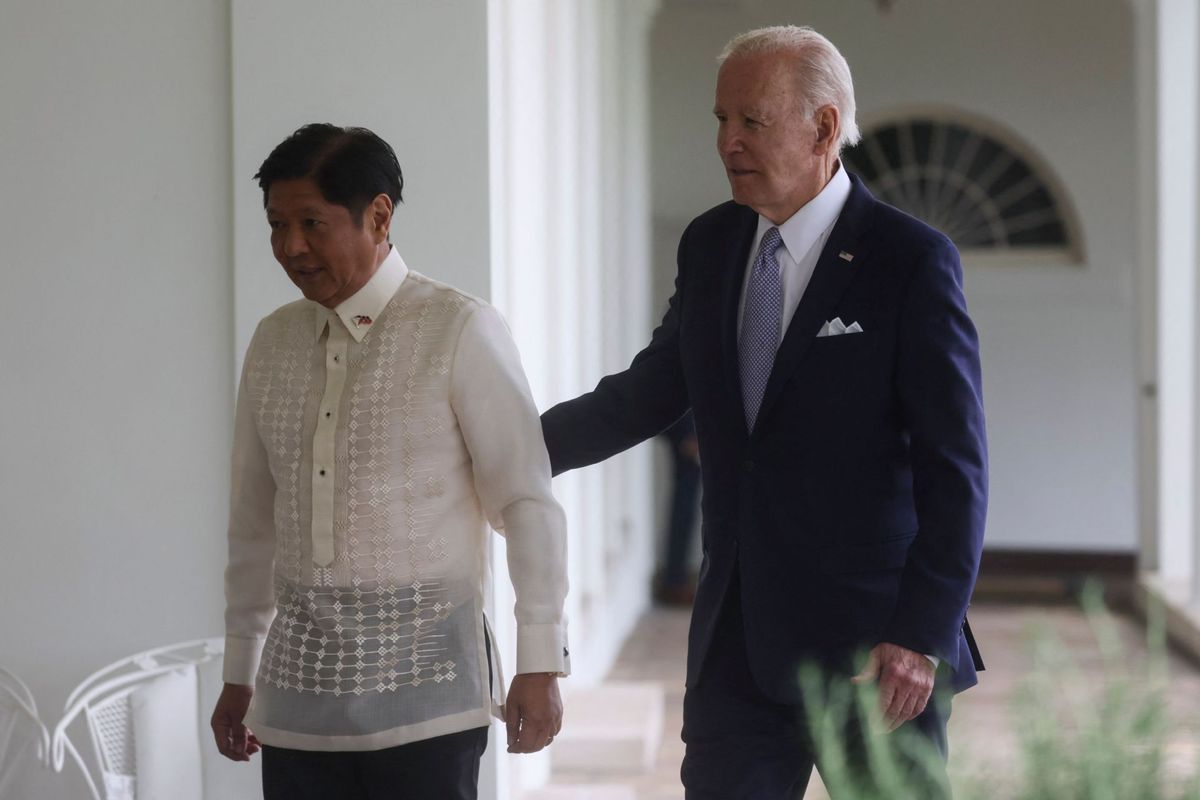Marcos puts himself in Washington's loop to detriment of regional peace and stability: China Daily editorial
chinadaily.com.cn | Updated: 2023-12-20 19:10

Philippine President Ferdinand Marcos Jr's remarks on the South China Sea issue on Saturday only serve to highlight his hypocrisy.
In his interview with Japanese media outlets, Marcos claimed a "more peaceful" approach is needed to de-escalate the tensions in the waters. But the "paradigm shift" he proposed — the Philippines should engage with partners in the "Indo-Pacific" and other countries — will do exactly the opposite.
Trying to pass the buck for the worsening situation in the waters to Beijing, the Philippine leader pretended that Manila is an innocent and helpless victim of Chinese "bullying".
But Marcos is in a better position than any other partners to know that it is not the failure of the "traditional methods of diplomacy" between Beijing and Manila that has caused the rising tensions, but rather his government going all-in with the US' "Indo-Pacific" strategy.
The world sees clearly that, emboldened by Washington and Tokyo, the Marcos government is now hellbent on turning the maritime disputes the Philippines has with China into a card that Washington can play in its strategy to contain China.
Manila has already discarded the long-term tacit consensus with Beijing that the two sides had observed over the past decades: That no third party, not to mention a nonclaimant external force, should be allowed to hijack their disputes to sow discord between them.
The Marcos government's change of approach happened soon after his honeymouthed visit to Beijing in January, which secured his government large amounts of Chinese investment, projects and orders. During that visit, Marcos stressed that China is the strongest partner of the Philippines, and nothing can hold back the continuation and development of the Philippines-China friendship. He said that his government is willing to continue to properly handle maritime issues through friendly consultations, and resume negotiations on oil and gas exploration.
However, without any provocation from the Chinese side, just a few weeks later, in spite of Beijing's strong opposition, the Philippines opened four new military bases to the US overlooking waters south of Taiwan island and the east flank of the South China Sea, signed a fresh security treaty with Japan targeting China, resumed joint air and sea patrols with the US in the disputed waters that had been suspended for years, and started trying to transport building materials to the old battleship the Philippines grounded on China's Ren'ai Reef 24 years ago to consolidate it into a permanent foothold.
As Marcos told the Japanese media, "We have to do something, what we have not done before. We have to come up with a new concept, a new principle, a new idea so that we move forward." The Philippines has done that, and in doing so it is leading the situation to open conflict.
If Manila continues to mistake Beijing's restraint for weakness, it will stand to lose much more than it gains playing its dangerous game.























